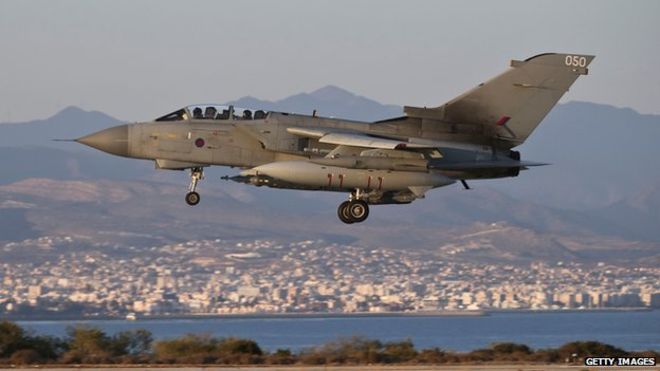
Britain is committed to working with the US to destroy the “caliphate” set up by Islamic State militants in Iraq and Syria, the prime minister has said. David Cameron told US TV network NBC he wanted the UK to do more but said he needed to “take parliament with him”. MPs voted against proposed military action in Syria two years ago. Meanwhile, Mr Cameron will use a speech on Monday to warn young Britons tempted to join IS they will end up as little more than “cannon fodder”. “If you are a boy, they will brainwash you, strap bombs to your body and blow you up. If you are a girl, they will enslave and abuse you,” he will say. ‘Standard practice’ Speaking about the UK’s possible role in fighting the group, Mr Cameron told NBC: “I want Britain to do more. I’ll always have to take my parliament with me. “We’re talking and discussing at the moment, including with the opposition parties in Britain, what more we can do. But be in no doubt, we’re committed to working with you to destroy the caliphate in both countries.” Last week Labour’s interim leader Harriet Harman was invited to a National Security Council briefing on the threat in Syria – which was seen as a further sign of a possible parliamentary vote to extend air strikes in the autumn. But Labour and the Lib Dems have called for an explanation in Parliament after it emerged that RAF pilots had taken part in bombing raids over Syria despite MPs having approved action against IS only in Iraq. Downing Street has confirmed that Mr Cameron was aware of the Syria missions flown by UK aircrew embedded with US and Canadian forces. And Defence Secretary Michael Fallon, who encouraged MPs to consider military action in Syria earlier this month, has defended the UK involvement saying it is “standard operating practice”. Source: bbc.com

